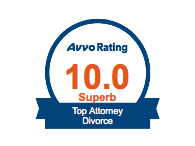Attorney Lauren Popovitch uses her years of studying Applied Economics and Management at Cornell University and experience as an investment bank financial analyst to ensure that all assets are uncovered and equitably divided.
Attorney Popovitch has structured settlements in high asset divorces. Attorney Popovitch has experience handling unique employment compensation such as stock options and K-1 distributions. Her experience allows her to:
- Evaluate privately held or family businesses and analyze retained earnings;
- Divide loans and credit card debt;
- Recognize tax consequences of support payments as well as property division and factor them into agreements or proposed judgments at the time of trial;
- Create the best plan to divide retirement, investment, and pension accounts (qualified and non-qualified plans required different considerations);
- Appraise the value of real estate;
- Consider and account for dissipation of assets/income;
- Discovery of hidden assets;
- Analyze trusts and/or estate plans;
- Advise and litigate the division of inheritances and trusts;
- Work with forensic accountants and experts in anticipation of trial or to reach settlements.
Rule 34 Factors
The mandatory factors for the judge to consider are “the length of the marriage, the conduct of the parties during the marriage, the age, health, station, occupation, amount, and sources of income, vocational skills, employability, estate, liabilities, and needs of each of the parties, [and] the opportunity of each for future acquisition of capital assets and income.” G. L. c. 208, § 34.
In addition to the mandatory factors that the judge is required to consider under G. L. c. 208, § 34,11 the judge “may also consider the contribution of each of the parties in the acquisition, preservation, or appreciation in the value of their respective estates and the contribution of each of the parties as a homemaker to the family unit.”
“The weight to be accorded each of the § 34 factors . . . is committed to the judge” (citation omitted), Ross v. Ross, 385 Mass. 30, 37 (1982), and “[t]here is no the mathematical formula to determine what weight a judge should accord to any of the factors in § 34.” Williams v. Massa, 431 Mass. 619, 631 (2000).
Attorney Popovitch works with each client to ensure the weight of specific Rule 34 Factors go in her client’s favor and ensure client’s contributions to the marital partnership are highlighted




